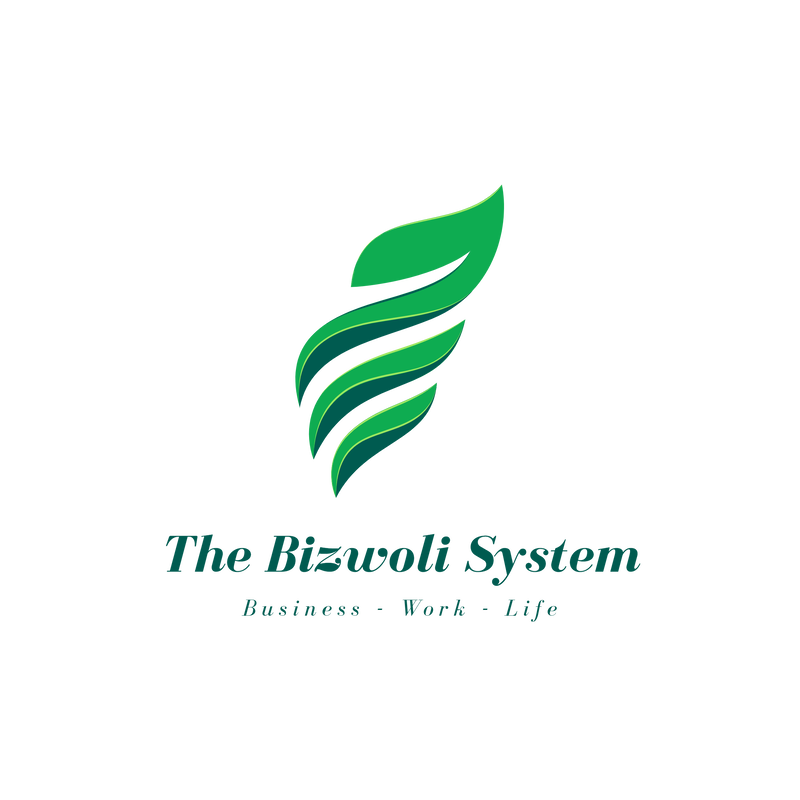 Work, for many is drudgery and has little meaning. They go to work with a heavy heart because they receive little satisfaction from it, However, there is one exception - they get paid. Perhaps you have heard these statements: "I work here because the money is good." "I put in my time so the company owes me." "I work from paycheque to paycheque." "I don’t like what I do but the pay is good." Money becomes the end, not the means to the end. There doesn't appears to be a higher purpose. Work becomes hard for them, not in a physical sense, but in an emotional sense. It becomes an emotional energy drain and plays havoc on one's mind, body and spirit. It becomes sheer drudgery. It needn't be like this. Not that work isn't difficult or emotionally draining. Work still can be that way. It can be physically draining. Lifting heavy objects day in and day out is physically draining; helping people solve their problems on a daily basis is emotionally draining. So how do we move the dial so that work has meaning and personal purpose? So that work goes beyond drudgery? Two intertwined dynamics are required. One is organizational leadership and the other is personal fit. Organizational leadership clarifies vision, mission and values; personal fit brings a meshing of personal purpose and values with the organization. Let's take an example. A former associate of mine once worked with a fertilizer company. The fertilizer was of the smelly manure kind, not the clean-cut potash kind. Employees were not enamoured with their work, in fact they expressed a heartfelt dislike for it. My colleague brought the company through a re-visioning process. He engaged the leadership team in developing a meaningful vision for the company and in turn engaged everyone in finding deeper meaning in their work - other than shovelling "sh*t" day in and day out. The leadership team and employees came to realize that what they were about was important for the growth of food. They were providing fertilizer "to feed the hungry." They discovered "why" they were in the fertilizer business – to feed the hungry. This awakening from what was apparently drudgery to a renewed purpose initiated greater opportunities. New values began to emerge that called upon personal and corporate compassion and outreach which were expressed in behaviour and action: employees began volunteering to the local food bank, the company promoted and employees became engaged in developing community gardens (using their fertilizer, of course) and contributing to improved farming practices within developing countries. Everyone within the organization found a renewed sense of purpose. It did not take away the "smell" and the shovelling of manure but it gave a new meaning to "why" they were doing it. The process required leadership, personal fit and commitment. Leadership spurred the visioning process, personal fit meshed personal values with company values and commitment drove behavioural change. This example summarizes the issue and results pertaining to part of the process. It doesn't give the full picture. Certainly, a shift in thinking (a renewed vision and values) initiates the behavioural change, but the transformation doesn't occur over night. The process takes time, energy, resilience and perseverance. Leaders require patience as cultural change occurs over time and not in an instant flash. They need to continually talk and walk the vision, mission and values and become role models for others. As one CEO said, it is often a two-step dance - "two steps forward and one step back, resilience is the name of the game." It's a nudge to the future, not a giant step. The process also requires ownership, responsibility and accountability among employees. A sense of ownership for their actions and a shift in thinking towards possibilities. Ownership for the fit they have with their work - that their work is more than a paycheque; that they need to go deep within themselves to find their sense of purpose and connect it with the vision and values of the organization; and, if the fit isn't there, to seek employment elsewhere. Work doesn’t become "drudgery" when you enjoy what you do and it fits with your sense of purpose and values. For many in that fertilizer plant, knowing that what they did – shoveling manure - helped feed the hungry, gave them a renewed sense of purpose. From this beginning, they went on to do greater things for themselves and their community through compassionate outreach. Is your work, "drudgery"? Or do you find higher meaning in what you do? If not, what can you do about it? If you are in a leadership position, what can you do to open new horizons and help your colleagues find new meaning in what they do?
0 Comments
 How do we find a sense of purpose and link it with our work? Sometimes we're unhappy because we don't have a full appreciation of our own sense of purpose and how it connects with our work. When we learn to connect our work (what we do) with our purpose (why we do it) then passion, excitement and joy usually follow. That's when people say "I really enjoy what I do." Successful businesses spend a great deal of time defining and branding their purpose. They do this because the brain trust of the company knows that a meaningful purpose and branding strategy is a uniting force both for employees and customers. Successful people also clarify their own sense of purpose. I know a CEO who says his purpose is "to remove barriers, find opportunities and do this while respecting the dignity of others." According to an article in Fast Company: Denise Morrison, CEO of Campbell Soup Company says that her personal mission is "To serve as a leader, live a balanced life, and apply ethical principles to make a significant difference." Joel Manby, CEO of Herschend Family Entertainment says "I define personal success as being consistent to my own personal mission statement: to love God and love others." Oprah Winfrey's purpose is "to be a teacher. And to be known for inspiring my students to be more than they thought they could be." Notice that the purpose statements are action and other oriented; and, they link our tangible reality with our intangible qualities. The focus on "others" tied to the intangible and often spiritual qualities are what make them meaningful. Notice also that the purpose statements are not the same. We all have unique gifts to offer others. Many people spend hours searching for a work but haven't spent any time clarifying their purpose. When employees don't connect a personal sense of purpose with work they are often unhappy, prone to complaining and disengaged. The ultimate outcome is apathy. Unfortunately, I have witnessed a lot of apathetic individuals within organizations. There are many factors that lead to apathy, for instance, it may be a result of poor leadership and management. On the other hand it may not. It may be a result of employees not finding real meaning in their work, or not taking the time to sort out their own purpose and how it relates to their work. In this latter case apathy results from a disconnect between what matters to the person and what they're asked to do. If an employee is disengaged and apathetic, managers are presented with an opportunity for some career coaching. Often managers respond to disengaged and apathetic employees by "Joe is not performing so let's get rid of him." There is another way of handling the situation. The manager can work with the individual to find a personal sense of purpose and then give him the opportunity to find a fit within the company (if there is one); or, help him come to his own conclusion that there isn't a fit, and he needs to find another workplace where he can better apply his skills and talents. My experience suggests that when individuals leave an organization where they received career coaching, they become ambassadors for that organization. Sometimes people find passion within their work after they are involved in it for some time. Initially they may see their work just as a job then something clicks - they find a home, their inner yearning for their own purpose becomes known - they find their passion. Jim was like this, for years he idled along in his work. He wasn't fired up about what he did. Then one day as he was toiling away at delivering water, something clicked. He connected water delivery with a higher purpose. He connected water with health and linked his job with helping others live healthier lives. His work no longer was a drudgery. Sure, he didn't like delivering water on cold or stormy days, but he did it because he knew he was helping someone. He had a higher purpose. He also became engaged in finding more efficient ways to deliver water, his demeanour changed from one who scowled most of the time to one who smiled most of the time. He became the "go to guy" when other "delivery boys" required support or clarification. Jim found meaning for himself and in his work and became passionate about it. You may be someone who isn't finding meaning in your work. If you are in this situation it's time to make some adjustments. Perhaps your work conflicts with your values, or the organization is in a process of change and is moving in a direction with which you are not comfortable. The question you need to ask is "do I want to be stuck in this situation for the rest of my life?" Does "what I do" connect with "why I do it?" If the answer is no, then it's time to act. It is better, and healthier, to find work that has meaning for you than to stay in a job that has little meaning or where you no longer find joy or satisfaction. This suggests taking a risk, leaving and landing back on your feet with purpose - you will be better for it. How to write a personal purpose statement.
Find work where your personal purpose statement and values fit like a glove. For example I know a nurse who is passionate about caring for others with absolute respect and love. She applies her passion with every patient under her care. I'm not trying to paint a picture of a Pollyanna type of existence. One where no personal or organizational obstacles are in the way. You will always be challenged, even when you commit to a meaningful and profound personal purpose. In fact you may be more challenged because you have purpose. Your sense of purpose, however, will reinforce your resolve, help you keep focus, and energize you to overcome those challenges. It is best to recognize that you will never be completely fulfilled because all of us are on the road of life that continues to unfold before us. You may already by living your work life passion. If you are, be thankful. If not, what changes do you need to make? "Whatever you decide to do, do it with passion and all of the energy that you have." Mary Barra, CEO of General Motors From: Richard Fontanie MSW, FCMC, the Archives of FontanieLearningSolutions |
Categories
All
Archives
January 2024
|
Photo from TheBosque


 RSS Feed
RSS Feed
